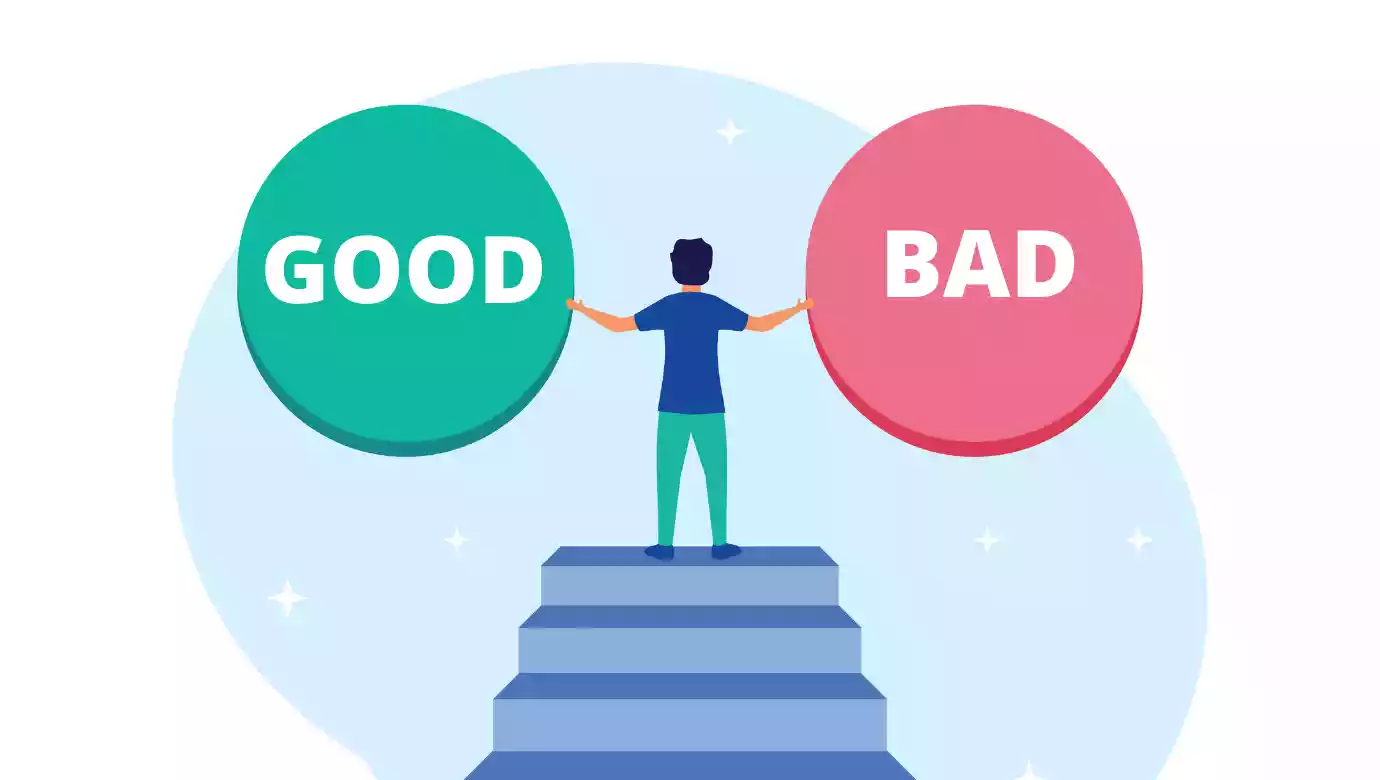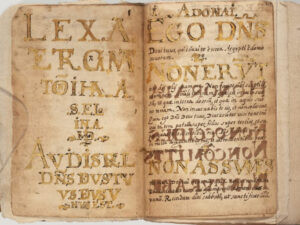
IF God is perfectly good, why did He create a world with pain, failure, and evil? Unpack the Jewish view of creation, choice, and how moral struggle gives life its deepest meaning.
Judaism teaches that the very act of creating the world was born from a place of boundless love. According to the Talmudic sage Rabbi Akiva, “Everything God does is for good.”1 In other words, the universe itself is an expression of divine kindness — not random, not utilitarian, but intentional and generous.
God, in His infinite goodness, desired to share that goodness with another — a being capable of recognizing, receiving, and appreciating it. To make this possible, He brought an entire world into existence, crafted with purpose and precision, to house the one creation that could fulfill this role: humanity. Our very existence, then, is meant to be a vessel for receiving divine good — the ultimate act of giving, and the deepest reason for being.
But then we look around.
Life is messy, painful, and confusing. People face hardship, disappointment, and failure. If God is all-knowing and all-loving, why does human life feel so imperfect?
Life doesn’t always feel like a gift. It often feels more like a struggle — messy, painful, and confusing. People face hardship, disappointment, and failure. If God is all-knowing and all-loving, why does human life feel so imperfect? Why would a world created out of kindness feel so relentlessly challenging? Why not design a reality that’s easier, smoother, more immediately fulfilling?
These questions lie at the heart of a profound spiritual tension — one that challenges us to rethink what divine goodness truly means.
To understand how God’s goodness operates — and why it remains absolute even in a world filled with hardship — we must first grasp a fundamental truth about God: He is entirely self-sufficient. Unlike human beings, whose actions are often swayed by ego, pressure, or external reward, God is influenced by nothing outside Himself. His choices are not reactions. They are pure expressions of His essence.
- GRDC in corruption allegations
- Divine insight: Secrets about prophetic timelines
- Grace tidings: Do you understand what it means to be holy?
- Katai fails to make the cut but …
Keep Reading
When people perform acts of kindness, their motives can be complex. A generous gesture might be driven by a desire for approval, the need to be admired, or even a hidden agenda. Sometimes goodness is genuine, but still shaped by societal expectations or emotional pressure. In contrast, God’s goodness is untouched by such constraints. It flows from Him freely, uncompelled and untainted — not because He must, not because He gains, but because He is good. Always. Without exception.
Free will: Emulating God
The greatest gift God can bestow upon His creation is the opportunity to be like Him.2 And what does it mean to be like God? It means to choose goodness — to act with kindness, compassion, and selflessness. When we make those choices, we emulate the divine.3
If we were programmed to act properly, like robots with no will of our own, our actions would carry no moral weight — and no resemblance to God’s greatness.
But there's a crucial condition: the goodness must be chosen freely. If we were programmed to act properly, like robots with no will of our own, our actions would carry no moral weight — and no resemblance to God’s greatness. After all, God is not compelled to do good; He chooses it, always and entirely of His own volition. If we are to be made in God’s image, we must have the same capacity: the freedom to choose how we act.4
That freedom, however, demands the presence of real alternatives. For goodness to be meaningful, its opposite must also exist. And so, to create a world where moral choice is possible, God introduced the concept of evil. As the prophet Isaiah declares, “It is I, God, who forms light and creates darkness, who makes peace and creates evil — I do all these things.”5 In other words, even the darker dimensions of existence serve a higher purpose: to give our choices depth, dignity, and divine potential.
At first glance, the presence of both good and evil in the world might suggest a cosmic tug-of-war — two opposing forces locked in eternal conflict. This was the belief of ancient systems like Zoroastrianism, which imagined a world ruled by dual spiritual powers: one good, one evil. But the prophet Isaiah firmly rejects this notion. He teaches that both good and evil originate from a single source — the one God.6 “I form light and create darkness,” God proclaims, “I make peace and create evil.”
This raises a profound question: Why would a God of pure goodness bring evil into existence?
The answer lies in the nature of moral choice. For humanity to truly reflect the divine, we must possess the freedom to choose between right and wrong.7 Without that freedom — without the possibility of doing wrong — goodness would be empty, and our actions would be no more than mechanical obedience. We would be incapable of resembling God in any meaningful way.
The Torah hints at this truth in its description of the first moral awakening: “And you will be like God, knowing good and evil.”8 It is this capacity for moral discernment — for weighing, choosing, and striving — that makes us like God.9 Free will is not just a feature of the human experience; it is the foundation of our spiritual potential.
This fundamental idea that humanity is governed by its own decisions is explicitly spelled out in the Torah. “See! Today I have set before you [a free choice] between life and good [on one side] and death and evil [on the other]. I call heaven and earth as witnesses! Before you I have placed life and death, the blessing and the curse. You must choose life.”10
Free will: The ultimate satisfaction
There is yet another profound reason why God granted humanity the freedom to choose morality rather than hardwiring it into our nature: the deep and lasting joy of earning one’s goodness. There is no comparison between receiving a gift and achieving something through personal effort. A person who builds financial stability through years of hard work feels a pride and fulfillment far greater than one who simply inherits a fortune. Likewise, a scientist who struggles for years toward a discovery feels a deep sense of identity and purpose — one that a lucky accident could never provide.
A person who builds financial stability through years of hard work feels a pride and fulfillment far greater than one who simply inherits a fortune.
It's not just the destination that matters; the journey, with all its effort and growth, is what makes the result truly meaningful.
Human beings instinctively understand this. Many willingly sacrifice comfort, pleasure, and even basic needs in pursuit of mastery, legacy, or a sense of accomplishment. In fact, the feeling of having earned something — of being the author of one’s own goodness — often surpasses any sensory indulgence.11 It is one of the most profound pleasures known to the human soul.
This truth is captured in a powerful teaching from the Talmud: “One who eats that which is not theirs is ashamed to look at the face of their benefactor.”12 Kabbalistic tradition13 understands this not merely as social commentary, but as a cosmic principle. If we were simply handed goodness without having chosen or struggled for it, we would be consuming what the mystics call the bread of shame14 — receiving divine kindness passively, without dignity or identity.
But God, in His love, withheld that shame. By embedding within us the possibility to choose wrong — by giving us real moral tension and inner conflict — He gave us something far greater than ease: He gave us the gift of self-creation. In the face of temptation, every choice for good becomes an act of becoming. And in that becoming, we do not merely receive God’s goodness — we begin to reflect it.
This perspective also sheds light on a puzzling and seemingly harsh statement in the Talmud: “Whoever says that God overlooks sin is overlooking his own life.”15 At first glance, this appears to contradict the very idea of divine mercy. How can we speak of a compassionate God who never lets a misdeed go?
Every action — good or bad — leaves a real imprint on the soul.
The answer lies in the spiritual architecture God built into our lives. Every action — good or bad — leaves a real imprint on the soul.16 God, in His wisdom, doesn’t arbitrarily reward or punish from outside; instead, He designed a reality in which our choices shape us. The consequence of a deed is not imposed — it’s embedded.
If, hypothetically, God simply erased the effects of wrongdoing as if they never happened, then the weight of our moral choices would disappear. Our lives would be reduced to something like a video game with unlimited cheat codes — effortless, consequence-free, and ultimately meaningless. But by linking our actions to genuine, lasting spiritual consequences, God dignifies our freedom and magnifies the meaning of our goodness.
This is not the absence of mercy — it is the highest expression of it. By making our moral lives real, God gives us the opportunity to create something of eternal value. Every mistake carries weight — but so does every triumph.
The Experience of Free Will
What does it truly mean to possess free will? How do we define — or even begin to measure — this essential aspect of the human condition?
The experience of making free choices is deceptively hard to explain. We often know what the right thing to do is. We understand what’s good, noble, and wise. And yet, time and again, we make decisions that go against that very knowledge. If we’re capable of such profound self-awareness and insight, why do we act in ways that betray it? Why do we, who can dissect ideas and weigh consequences with great intellect, still fall into patterns of self-sabotage and contradiction?
To help us understand this inner conflict, a great Jewish thinker once offered a powerful analogy:17
Imagine a smoker sitting in his doctor’s office. The doctor delivers a sobering message: he stands at a critical juncture. If he quits smoking now, his lungs will begin to heal and he’ll reclaim years of life. But if he continues, the damage will soon become irreversible, shortening his life dramatically.
The tension between the inner competing voices – what we want versus what we feel like – creates choice.
Shaken, the man leaves the appointment committed to change. But only hours later, back at home, the craving strikes. He tells himself, “Just one more cigarette — then I’ll get serious.” Deep down, he knows the truth: one more will lead to another, and the habit will return full force. The rational, long-term thinker in him pleads to hold the line. But the emotional, impulse-driven part counters with false logic and tempting what-ifs: “It’s only one. Maybe this time will be different.”
In that moment, the battle between clarity and desire, future and present, conscience and craving plays out. The ability to delude ourselves creates the theater of free will. Do we choose what we really know is the correct decision, or do we convince ourselves that what we would like to do in the moment is a perfectly acceptable choice and tune out the part of our brains screaming “Stop!”
The tension between the inner competing voices – what we want versus what we feel like – creates choice.
Choosing Good
The Torah writes “It (the good) is something that is very close to you. It is in your mouth and in your heart, so that you can keep it.”18
The power to become our highest selves is already within us — in our hearts, in our thoughts, and even on the tip of our tongues.19 Deep down, we know the right path. The only thing left is to choose it.
When we consistently choose goodness over impulse, growth over comfort — we begin to shape ourselves into who we were meant to be. We don’t just receive our identity; we forge it.
And when we do — when we consistently choose goodness over impulse, growth over comfort — we begin to shape ourselves into who we were meant to be. We don’t just receive our identity; we forge it. Through every moral decision, every act of restraint, every moment we push back against our baser instincts, we sculpt a soul that reflects the image of God.
The reward for that struggle is not merely a place in the next world, but something profoundly present: a sense of deep, lasting fulfillment. A soul that has earned its shape knows a joy no pleasure can rival — the joy of having become.











